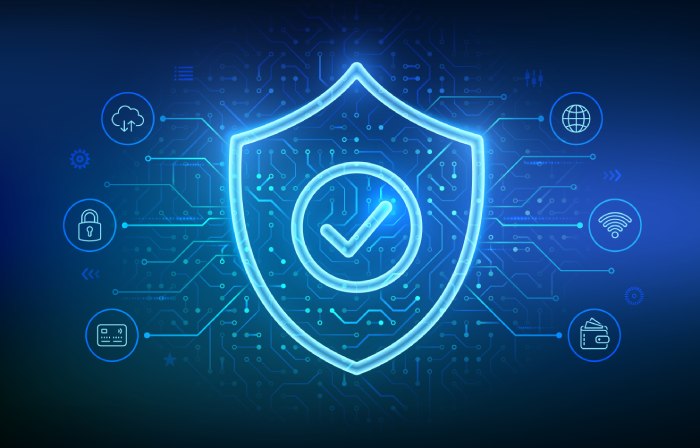When a healthcare organization tells me they suffered a data breach, I tend to believe them. When they tell me social security numbers were unaffected, I have to look a little deeper. Such is the case with the network of Affordable Urgent Care Clinics based in Texas.
An article online “officially confirmed a combination data breach-ransomware attack that exposed sensitive information. The company is claiming that social security numbers were not impacted in the incident, despite security experts having demonstrated that the attackers have published stolen documents containing patients’ and employees’ SSNs.” Things that make you go hmmmm.
Phishing Attacks on Healthcare
Despite hackers saying they were going to take it easy on healthcare organizations during the COVID-19 pandemic, “A deluge of attacks has included phishing emails purported to be from health agencies, counterfeit product offers and bogus charity donation requests, according to security analysts,” from Security Week.
“Over the past month, at least 100,000 new web domain names were registered containing terms like covid, corona, and virus, many of which are considered ‘malicious,’ according to a report prepared for the global internet registry agency ICANN.” That’s what they consider taking it easy?
Airline Phishing Scams
No, the airline is not contacting you to refund your airline ticket. That’s a scam, according to Your Mileage May Vary. “Emirates Airlines, Dubai’s flagship airline, has recently warned its customers about such emails. To prevent the spread of coronavirus, the airline temporarily suspended all passenger service on March 25.” That’s all the scammers need to launch an attack.
Phishing Phrontier
Can a phishing scam begin with a phone call? Apparently, the answer is “Yes.” According to a threat analyst at KnowBe4, “A recent suspicious phone call was brought to our attention. It looks to be the beginning of a phishing campaign and demonstrates the lengths cybercriminals will go to in order to ensure success.” For the uninitiated, this type of thing is called vishing.
“The idea of vishing before phishing isn’t out of the realm of possibility; the use of social engineering takes all forms. And a layered attack strategy likely has a better chance of succeeding than simply sending, in this case, an unsolicited email from a known vendor, which – in the case of IT pros specifically – would probably have a very low success rate.”
Spreadsheet Breach
Ever use a password to protect your Excel spreadsheets? You could be the victim of a sophisticated new attack. According to SC Magazine, “threat actors are taking advantage of an existing Excel security measure that enables a spreadsheet to be password protected, essentially encrypted, requiring the recipient to have the password. Unfortunately, there is a flaw in the Excel system that can bypass the need for a password to be input that can let a malicious document slip in.”
So, something used to make things safe actually makes things less safe. Thanks Microsoft.
Body Count
Stay at Marriott? You may have had your information stolen. According to SC Magazine, “Marriott International on Tuesday disclosed another major data breach, this one affecting 5.2 million of its guests.” That’s a million with an “m”.
“According to the Bethesda, Md.-based hospitality giant, the source of the breach was an application that its hotels use to provide guests with various services. Affected information includes guests’ names, mailing addresses, email addresses, phone numbers, loyalty account numbers and point balances, employers, genders, birthdays (day and month only), airline loyalty program information, and hotel preferences such as room and language selections.”
Georgia Citizen Data Breach
Live in Georgia (the country not the state)? You may have had your information stolen. From SC Magazine, “A member of a hacking forum has reportedly posted data corresponding to over 4.9 million of citizens from the country of Georgia, both living and dead.” The dead? That’s cold.
“The leaked dataset was made available via a 1.04 GB Microsoft Access database file, according to a report from ZDNet, which was alerted to the dump by breach monitoring and phishing prevention service Under the Breach. Compromised information includes names, home addresses, birth dates, ID numbers and mobile phone numbers.”
Escrow Data Breach
Well that’s embarrassing. An employee at GoDaddy, one of the largest web hosting companies, was successfully phished due to lack of a proper email security service, which led to unauthorized access to one of its most high-profile customers, escrow.com.
“Escrow.com is one of the US’ leading broking websites, enabling thousands of customers to make secure transactions online, however the hackers were able to change its homepage to a profanity-laden message. Matt Barrie, the CEO of freelancer.com, which owns escrow.com, confirmed that none of its systems were compromised, and no customer data, funds or domains were breached or accessed.” I wonder who’s more embarrassed, GoDaddy or Escrow.
And that’s the week that was.


